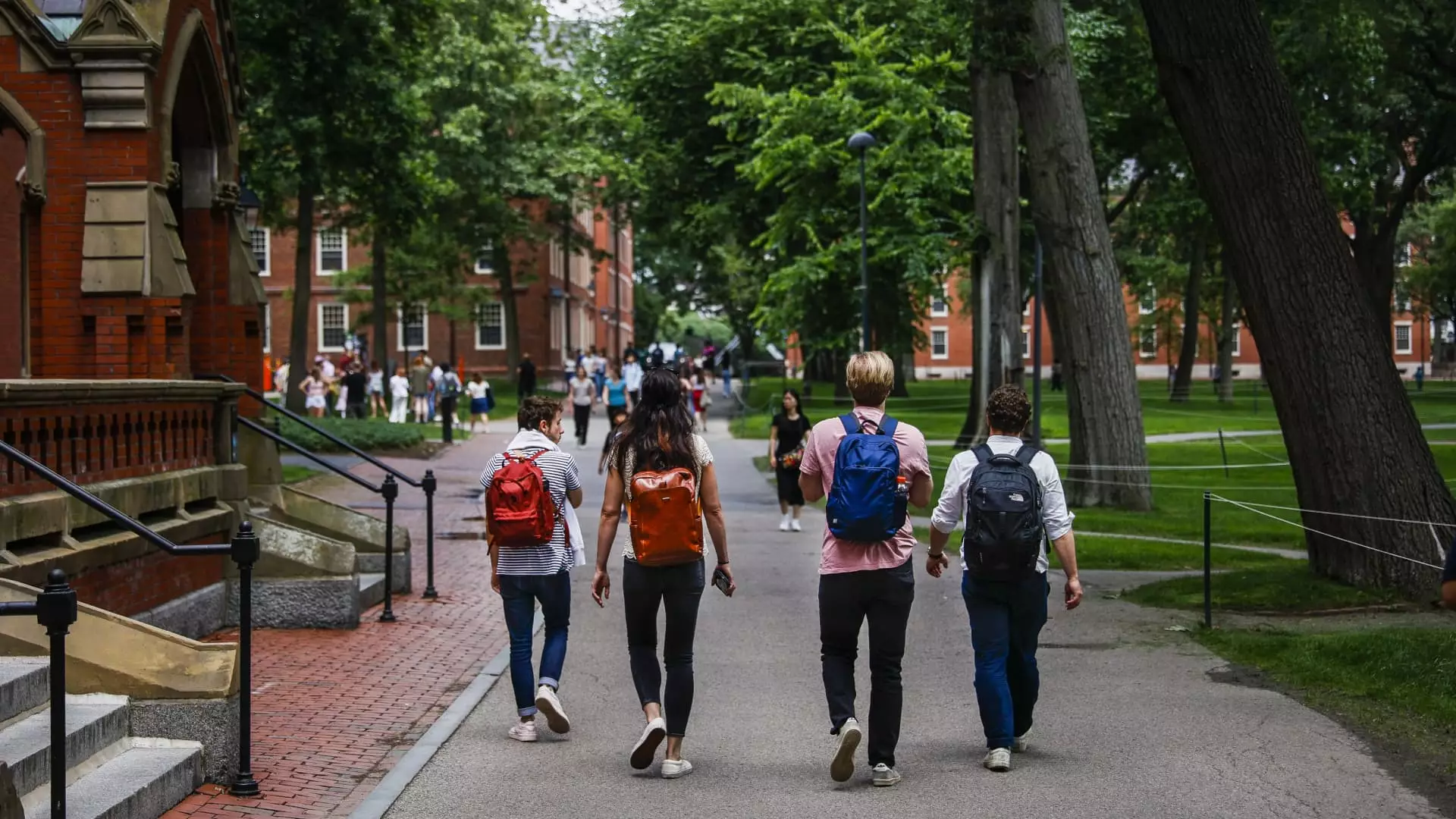The recent conflict between the Trump administration and Harvard University goes far beyond the realm of education; it has the potential to cripple an economically crucial sector. With international students injecting a whopping $43.8 billion into the U.S. economy during the 2023-24 academic year, the implications of restricting their enrollment demand serious scrutiny. In Massachusetts alone, these students were responsible for nearly $4 billion in contributions and supported over 35,000 jobs. The numbers are staggering, yet the political machinations threaten to overlook them in a seeking of ideological dominance.
Harvard’s Role as an Economic Pillar
Harvard University stands as a glaring example of how international students serve a significant role in the local and national economy. With 27% of its student body composed of international individuals—a stark increase from 22.5% a decade ago—Harvard is not merely a place of learning; it is an economic engine. In fact, the university’s more than 6,000 international students are crucial to maintaining over 1,125 local jobs and contribute an estimated $180 million to the greater Boston area. This data, gathered by economic analysis firm Implan, illustrates that the dollars flowing through these universities are not just digits on a balance sheet; they underpin entire communities.
The significance of this financial influx cannot be overstated. Harvard, like many prestigious institutions in the nation, relies on tuition from international students who typically pay the full price. This dependency creates a paradox—while these students enrich the educational environment and contribute substantially to local economies, they are simultaneously viewed as political pawns in a much larger ideological struggle.
The Broader Implications of Trump’s Administration
The Trump administration’s attempts to ban or restrict international student enrollment from Harvard exemplify a troubling trend of politicizing education. The implications of such a ban are multi-dimensional; it not only threatens institutions like Harvard but could have a ripple effect throughout the entire New England region. Economist Bjorn Markeson states that economic structures resemble networks; when one node falters, the consequences reverberate throughout the interconnected system.
President Trump’s administration has framed its actions as necessary to combat rising anti-Semitism. However, using educational institutions as instruments for political agendas raises a plethora of ethical questions. Harvard’s refusal to comply with the government’s demands following the anti-Semitism task force’s announcement is not simply an act of defiance; it reflects the broader principle of academic freedom and the university’s commitment to a diverse student body.
A Call for Rational Discourse
Education should not devolve into a battleground for political warfare. As Robert Franek of The Princeton Review articulates, international students diversify the student body and elevate the academic experience for everyone involved. They foster a global consciousness that transcends the narrow lens of local or national issues. Yet, we find ourselves trapped in an environment where educational institutions are continuously placed under political scrutiny rather than celebrated for their contributions to society.
Secretary of Education Linda McMahon’s declarations that Harvard needs to do more to confront anti-Semitism on campus reflect a concerning reality: when political narratives dominate, it’s easy to forget the essential mission of universities—to foster learning, dialogue, and understanding. The fixation on screening foreign admissions overlooks the fact that these very students enrich the American cultural landscape.
The tragic irony lies in the administration’s approach toward groups that are far from the homogeneous profile it seemingly favors. Instead of resorting to divisive tactics, the conversation should pivot toward addressing genuine concerns about campus conduct and promoting a respectful discourse among all students.
In a time when unity and collaboration are crucial, it would serve us well to recognize the crucial role that international students play—not merely as revenue generators, but as vital contributors to our society’s intellectual and cultural capital.

